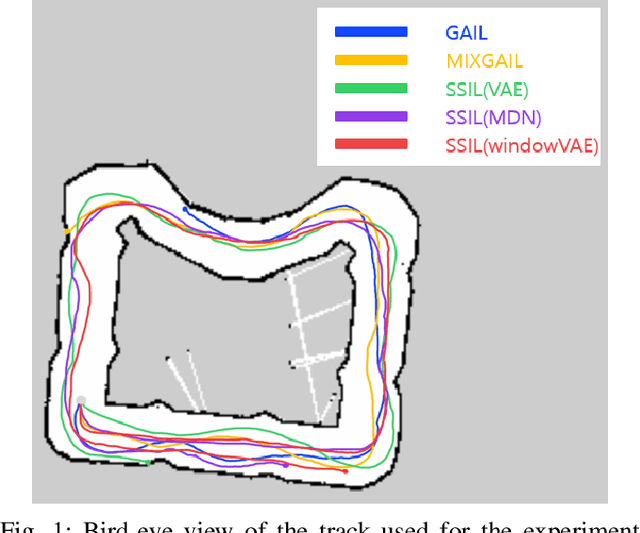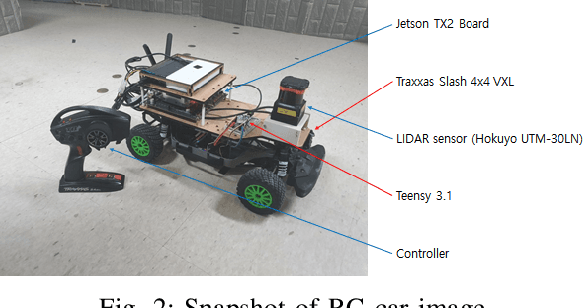Semi-Supervised Imitation Learning with Mixed Qualities of Demonstrations for Autonomous Driving
Paper and Code
Sep 23, 2021



In this paper, we consider the problem of autonomous driving using imitation learning in a semi-supervised manner. In particular, both labeled and unlabeled demonstrations are leveraged during training by estimating the quality of each unlabeled demonstration. If the provided demonstrations are corrupted and have a low signal-to-noise ratio, the performance of the imitation learning agent can be degraded significantly. To mitigate this problem, we propose a method called semi-supervised imitation learning (SSIL). SSIL first learns how to discriminate and evaluate each state-action pair's reliability in unlabeled demonstrations by assigning higher reliability values to demonstrations similar to labeled expert demonstrations. This reliability value is called leverage. After this discrimination process, both labeled and unlabeled demonstrations with estimated leverage values are utilized while training the policy in a semi-supervised manner. The experimental results demonstrate the validity of the proposed algorithm using unlabeled trajectories with mixed qualities. Moreover, the hardware experiments using an RC car are conducted to show that the proposed method can be applied to real-world applications.
 Add to Chrome
Add to Chrome Add to Firefox
Add to Firefox Add to Edge
Add to Edge